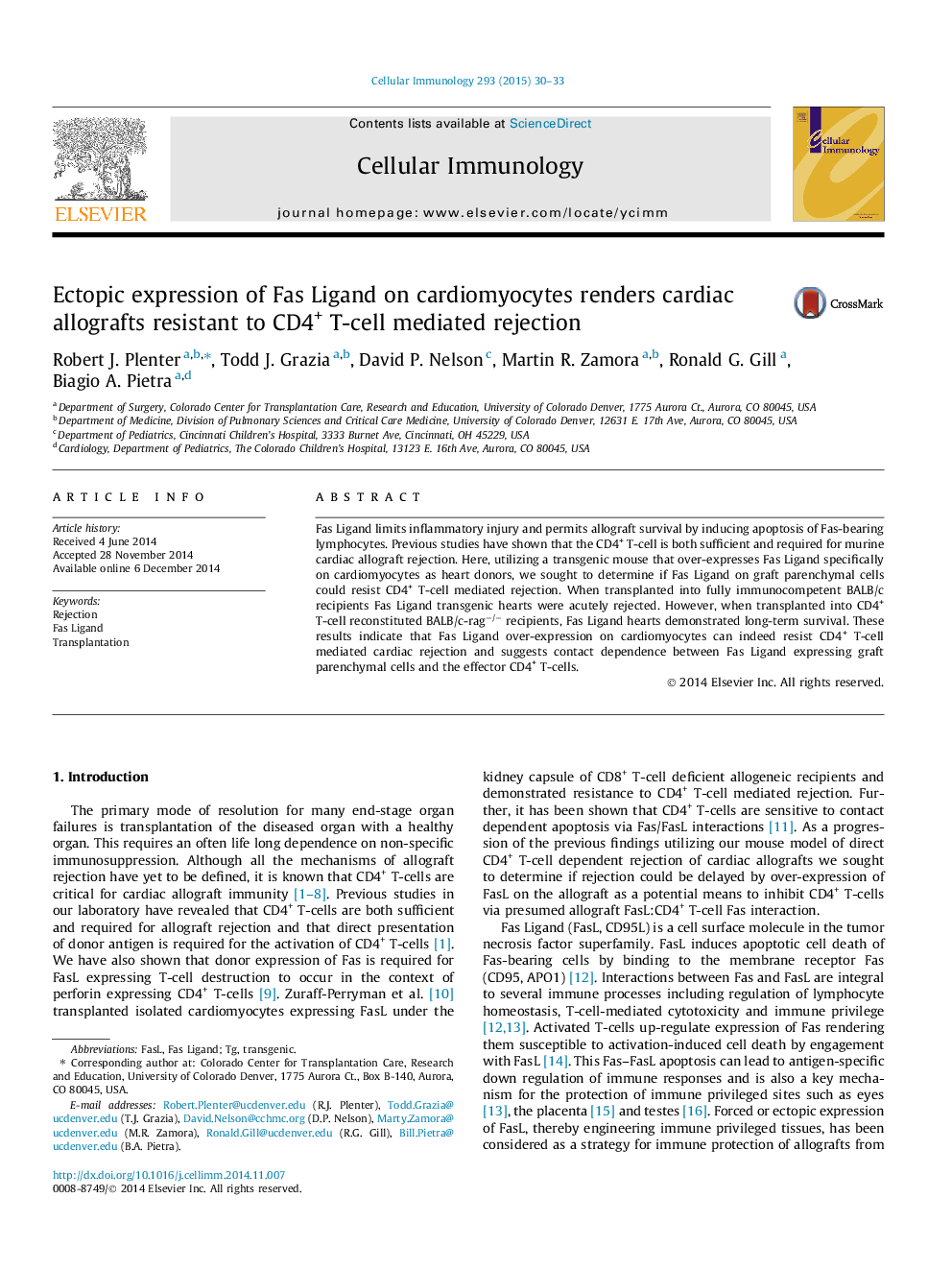| Article ID | Journal | Published Year | Pages | File Type |
|---|---|---|---|---|
| 2166999 | Cellular Immunology | 2015 | 4 Pages |
•We over-expressed Fas Ligand on donor cardiomyocytes.•We investigated if this ectopic expression could prolong cardiac graft survival.•FasL was incapable of prolonging grafts in fully immunocompetent recipients.•FasL was capable of prolonging grafts when exposed to CD4+ T-cells.
Fas Ligand limits inflammatory injury and permits allograft survival by inducing apoptosis of Fas-bearing lymphocytes. Previous studies have shown that the CD4+ T-cell is both sufficient and required for murine cardiac allograft rejection. Here, utilizing a transgenic mouse that over-expresses Fas Ligand specifically on cardiomyocytes as heart donors, we sought to determine if Fas Ligand on graft parenchymal cells could resist CD4+ T-cell mediated rejection. When transplanted into fully immunocompetent BALB/c recipients Fas Ligand transgenic hearts were acutely rejected. However, when transplanted into CD4+ T-cell reconstituted BALB/c-rag−/− recipients, Fas Ligand hearts demonstrated long-term survival. These results indicate that Fas Ligand over-expression on cardiomyocytes can indeed resist CD4+ T-cell mediated cardiac rejection and suggests contact dependence between Fas Ligand expressing graft parenchymal cells and the effector CD4+ T-cells.
